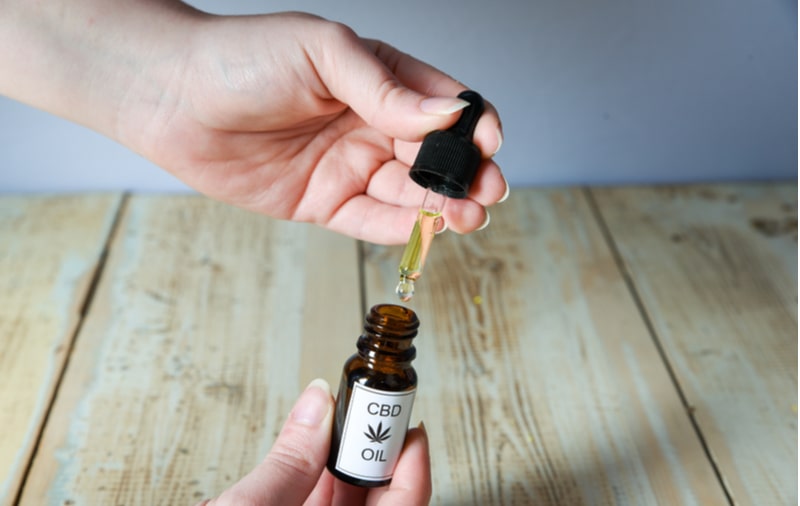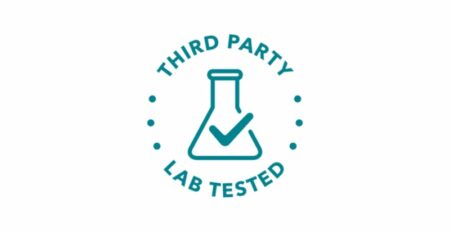Is CBD Oil Legal Worldwide? The Legal Status of Cannabidiol
People are increasingly enjoying the benefits of Cannabidiol (CBD), with many asking if CBD is legal worldwide. CBD’s surge in popularity is no joke. Many swarm to it after reading about its potential benefits.
Not to mention, many are tempted by the improved sleep experience CBD supposedly offers. While these may seem to be just claims, a lot of research has backed them up. With that said, it is crucial to abide by national laws surrounding CBD in your country.
Let’s explore the legal status of cannabidiol across the globe.
A Brief Summary of CBD
Previously available in just an oil form, CBD can now be ingested or used topically. A compound derived from the cannabis plant, CBD is one of the hundreds of cannabinoids found in the plant.
Over the last number of years, CBD has become increasingly mainstream. For this reason, scientists now work to identify the health benefits of consuming CBD. In addition to CBD, another compound discovered in this plant is THC.
CBD is so popular because it supposedly helps users with their health concerns while not giving them a high feeling. CBD does not cause this euphoric feeling because it contains minimal amounts of THC, a known psychoactive.
Therefore, CBD will not alter your state of mind. Instead, it is said to benefit physical and mental health and wellbeing while ensuring you are clear-minded. As mentioned previously, it is currently available in various forms – skincare, oil, gummies, chocolate, tea, and coffee, to name a few.
Is CBD Legal Worldwide?
Unfortunately, some countries are yet to legalise CBD. The laws and regulations change from country to country. CBD is legal in some with a prescription, while others implement a ban.
The Legal Status of CBD in Europe
While CBD is legal in most European countries, some have yet to legalise it. The laws are ever-changing, too, so it is critical to ensure you can consume CBD in your country. Below, we explore the European countries that have a legal stance on CBD.
Andorra
Similar to Albania, Andorra has no CBD-specific regulations. They have prohibited cannabis, and those caught with the drug can be issued significant fines or go to prison. They are also not a member of the EU.
With this in mind, it seems clear that CBD is illegal in Andorra.
Albania
As of 2021, Albania still does not have any specific laws surrounding CBD. No regulations clarify whether it is legal to consume, use in cosmetics or foods. Therefore, it is most likely that CBD is not legal in Albania.
Belarus
Belarus views CBD and cannabis as one. Due to this, it is illegal to consume CBD in Belarus for medical and recreational reasons.
Austria
Austria has gone back and forth with legalising CBD products. In 2018, the government prohibited CBD as food products, cosmetics, and supplements. In saying that, CBD was legal to consume up until then.
This ban came as a result of the unregulated market. Therefore, they adhered to the EU’s Novel Food Regulation, which deems CBD a novel food. CBD products which are marketed for enhancing health as cosmetics and food are illegal.
However, CBD relies on a grey area because retailers were able to find a legal loophole. This enables them to sell and market their products without breaking the law.
Belgium
Belgium’s CBD laws have changed over the past while; this was a shock to many, given it was quickly becoming Europe’s cannabis hub. Like Austria, Belgium also adheres to the Novel Food Regulation and bans CBD foods and health enhancers.
Therefore, this new law places CBD into a grey area. No ban existed before on CBD products, so it is safe to assume that CBD is legal to consume so long as it is a novel food.
Bulgaria
Cannabis and CBD products are currently illegal in Bulgaria.
Bosnia & Herzegovina
As of 2021, CBD products are illegal to consume and sell in Bosnia and Herzegovina.
Cyprus
CBD is legal in Cyprus so long as it has been extracted from industrial hemp and the THC levels do not exceed the legal limit.
Croatia
It is entirely legal to sell and purchase CBD products in Croatia. However, products must follow all the guidelines surrounding CBD.
Estonia
CBD is entirely legal in Estonia since it is not characterised as a psychotropic drug.
Denmark
It is legal to sell, purchase and consume CBD products in Denmark currently. However, up until recently, Danish residents wanting to try CBD would require a medical prescription. Not to mention, they prohibited CBD products that contained any levels of THC.
In saying that, they amended the law, and CBD is now legal in Denmark. This is so long as the CBD product does not contain more than 0.2% of THC. Therefore, you can use CBD in Denmark for both medical and recreational purposes.
In addition, you can now avail of CBD without a prescription.
France
CBD is legal in France as long as the products do not contain any THC. With that in mind, products with THC are illegal to sell and consume here.
Finland
CBD that contains the recommended levels of THC is legal to consume and sell in Finland. However, CBD products are characterised as medicine in Finland. Therefore, if you want to consume CBD in this country, you’ll need a prescription.
Greece
CBD is currently legal in Greece as long as it is hemp-derived. In addition, the THC content must be no more than the recommended amount. If you are looking for CBD with higher THC levels in Greece, you will require a prescription.
Germany
As long as the CBD is extracted from the hemp plant, CBD is legal to use in Germany. However, CBD products with higher THC levels than the recommended amount will require a prescription. The only thing to keep in mind is that CBD edibles are prohibited in Germany due to the Novel Food Regulation.
In addition, hemp flowers can only be sold for commercial and scientific purposes.
Iceland
Iceland does not have any particular laws on CBD. Furthermore, the country does not distinguish between CBD and cannabis. Therefore, it is safe to say CBD is illegal in Iceland.
Ireland
The Irish law does not characterise CBD as an illegal drug. Therefore, CBD is legal to sell and consume. In addition, you can purchase edibles in Ireland.
Ireland also allows hemp production for CBD products. In saying that, the products must contain very minimal amounts of THC or none. In addition, Ireland does not allow for products to be created from solvent extraction or CO2.
Hungary
It is legal to sell and consume CBD products in Hungary. The only condition is that the products do not contain more than the recommended amount of THC.
Lithuania
The cultivation of hemp is legal in Lithuania so long as the THC levels do not exceed 0.2%. However, this is only permitted for fibre and food such as seeds. Government officials passed a bill in 2019 to allow the sale and consumption of cannabis edibles.
The edibles should have minimal THC levels. However, recreational CBD remains banned. CBD foods are legal in Lithuania but cannot be marketed as health enhancers. Currently, the legal hemp products include hemp protein, seed oil, and flour.
Italy
CBD is completely legal in Italy so long as the products in question do not exceed the 0.6% THC limit. However, products containing more than 0.6% THC are prohibited. In addition, cannabis is still illegal.
Malta
It is legal to consume CBD in Malta so long as you have a medical prescription. In saying that, many stores still sell CBD products. You may be wondering why they can do this, and there is no real answer.
Police have been overseeing it but not taking action, leaving CBD here in a grey area in Malta. Technically, it is illegal; however, it is not policed. Therefore, it is safe to say CBD is legal for medical purposes here.
Poland
CBD is legal in Poland; however, it must contain less than 0.2% THC and be extracted from industrial hemp. In 2017, the Polish government also legalised cannabis for medicinal purposes.
Luxembourg
As long as the THC levels are kept at 0.3% or below, CBD products are legal to use and sell in Luxembourg. The CBD must also be derived from industrial hemp.
Norway
Norway characterises CBD as a medicine, which is legal to use so long as you have a medical prescription. In saying that, only products that have 0% THC are legal to consume and sell here.
Netherlands
Using cannabis recreationally is legal in the Netherlands, and marijuana and hemp are both permitted. In saying that, CBD has some requirements to be legal here. The CBD must be derived from hemp and cannot contain more than 0.05% THC.
Romania
You can legally purchase and consume CBD in Romania. The only condition is the product must contain no more than 0.2% THC. The government has no requirements regarding CBD source and extraction.
Portugal
Portugal regarded CBD oil as a food supplement up until 2018. However, its characterisation has changed since, and it is now considered a medicine. You can purchase CBD legally from your local pharmacy.
However, you must have a prescription from a medical professional.
Russia
CBD products are prohibited in Russia, as are all cannabis products. It does not matter what the THC levels are; you cannot purchase, consume or sell any of these products in Russia.
Slovakia
CBD is Europe’s strictest country for cannabis possession. As a result, they do not distinguish between cannabis and its derivatives like CBD. Therefore, CBD products are illegal here, and there are significant consequences for those selling and using them.
Serbia
Similar to Russia, Serbia has prohibited all Cannabis derivatives and products. This includes CBD, which is banned for medical and recreational use.
Spain
Spain is relatively liberal when it comes to cannabis; as a result, recreational cannabis cultivation is permitted. In saying that, CBD-infused consumable products are prohibited. CBD products cannot be labelled as a technical product, a cosmetic, or for external use only.
Beyond this, Spain must still stick to the 0.2% THC level rule.
Sweden
CBD is legal in Sweden. However, they do not comply with the 0.2% THC limit set by the EU. With that kept in mind, when you purchase CBD products here, they are likely to contain zero THC.
Slovenia
It is entirely legal to use and sell CBD in Slovenia. The only condition is that the THC levels do not go past the 0.2% recommended amount.
Switzerland
It is legal to purchase and sell cannabis products in Switzerland as long as the THC levels do not go above 1%. There are no other specific regulations or restrictions on CBD products.
United Kingdom
The UK does not consider CBD a controlled substance, and therefore, it is legal to consume and purchase. However, it must comply with UK regulations and laws. For example, it must be extracted from an EU-approved industrial hemp strain.
Ukraine
Similar to Sweden, it is legal to consume and sell CBD in Ukraine. However, the products must contain no THC.
What is CBD’s Legal Stance in South America?
Many countries within South America are beginning to see the potential benefits of CBD. With that, some countries have legalised it.
Argentina
CBD is legal in Argentina for medical use. Therefore, you will require a medical prescription to obtain CBD products.
Bolivia
Both CBD and cannabis are entirely prohibited in Bolivia. The government does not distinguish between marijuana and hemp. Those found with marijuana can face huge repercussions.
Colombia
The manufacturing and cultivation of cannabis and its derivatives are legal for both scientific and medical reasons. Hemp cultivation is permitted; however, those who wish to create CBD products must obtain a licence from the Ministry of Health. Recreational use of cannabis in Colombia is decriminalised.
However, commercial sale is banned. Individuals must not have more than 20 grams of the drug and can only grow up to 20 plants. Therefore, you can purchase CBD here for medicinal or recreational purposes.
Chile
CBD is legal for medical use in Chile. You must get a prescription from a medical professional to obtain it. If you break the law and use CBD for recreational reasons, you could face fines.
Paraguay
CBD is legal in Paraguay for medical use. However, it is usually only authorised when traditional medicine fails to help. CBD has to be prescribed by a medical professional.
Ecuador
Ecuador has decriminalised recreational cannabis; however, medical cannabis remains illegal. There is limited information about CBD and whether it is banned or permitted. However, it is safe to say that CBD is illegal here, given the lack of information.
Uruguay
Uruguay is one of the pioneers in recreational cannabis legalisation. CBD is legal here so long as it is derived from industrial hemp. The product must also contain less than 1% THC.
Peru
In Peru, CBD is legal for medicinal purposes. The CBD must be extracted from industrial hemp and have a THC level of 1% or less.
Venezuela
It is illegal to consume and sell CBD products in Venezuela.
What US States Have Legalised CBD?
CBD is legal in many US states so long as it contains less than 0.3% THC, according to the 2018 farm bill. In saying that, you still have to check with your individual state laws if you can use CBD there. America has categorised CBD’s legality by green states, amber states, amber/red states, and red states.
Below are the green states where CBD is entirely legal:
- Alaska
- California
- Colorado
- Massachusetts
- Maine
- Michigan
- Nevada
- Oregon
- Vermont
- Washington DC
Below are the amber states where you can purchase and consume CBD products with a prescription:
- Arizona
- Arkansas
- Connecticut
- Delaware
- Florida
- Hawaii
- Illinois
- Louisiana
- Maryland
- Minnesota
- Missouri
- New Hampshire
- Montana
- New Jersey
- North Dakota
- New Mexico
- Ohio
- New York
- Oklahoma
- Pennsylvania
- Rhode Island
- Utah
- West Virginia
The amber states are those who only permit CBD use if you have a prescription for specific ailments:
- Alabama
- Georgia
- Indiana
- Iowa
- Kansas
- Kentucky
- Mississippi
- North Carolina
- Tennessee
- Texas
- Virginia
- Wisconsin
- Wyoming
Below are the red states where cannabis products and their derivatives are illegal:
- Idaho
- Nebraska
- South Dakota
Are CBD Products Legal in Australia?
CBD is legal for medical purposes in Australia. This means you will require a prescription from a medical professional. In addition, CBD products must not exceed the 2% THC level.
What is Africa’s Legal Stance on CBD?
CBD and cannabis are illegal in Africa, with the exception of the products being permitted in South Africa. The products are widely available to purchase here for recreational use.
Is CBD Legal in Mexico?
CBD products that contain below 1% THC are legal to purchase and sell in Mexico. Therefore, you can enjoy CBD in Mexico without the need for a prescription.
What is New Zealand’s Legal Stance on CBD?
Similar to Australia, New Zealand has confirmed CBD is legal for medical use. It is characterised as a prescription medicine and is only possible to obtain with a prescription. The THC levels must not exceed the 2% THC limit.
Is CBD Legal in Canada?
The Cannabis Act confirms that industrial hemp and marijuana are permitted in Canada. In saying that, only cannabis licensed retailers and processors can make, distribute and sell CBD products. The country has very strict regulations when it comes to CBD retailers.
Those who hope to sell CBD products must undergo a complicated application process that takes many months. The process costs a lot of money and can be very frustrating.
In Summary
It’s not surprising many want to try CBD after hearing about its potential health benefits. The only question on most people’s minds is – is CBD oil legal worldwide? Answering this question is not simple, as some countries are yet to legalise CBD.
It’s crucial to ensure that CBD consumption is legal in your country. Not to mention, it is essential to learn about the regulations for selling CBD. For example, as a consumer, it is good to note a product’s THC levels.
As CBD gains popularity, it seems it’s only a matter of time before more countries legalise it.





